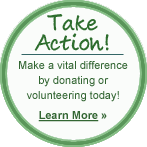
News » Unique Partnership with Visiting Nurse Services of NY Featured in NYPost!Today's New York Post featured a special section on Health at Home that included an article about the unique partnership between Visiting Nurse Services of New York and University Settlement. Together the two agencies are working to provide vital health and social services to as many as half of Chinatown's seniors.  Going to 'town: Pioneering home program tends health needs of Chinatown's elders By Cara O'Flynn Sau Fong Lee left Hong Kong for New York in 1969, but even after four decades here, she speaks no English. An 85-year old who spent her working life cutting thread and packing clothes in local garment factories, Lee now cannot walk by herself. Unable to leave her Chinatown apartment, she has a home health aide to tend her day-to-day needs. But when she needs to see a doctor, there's no easy way to get there. Normally, this would rule out her getting a flu shot. But recently the injection came to her, via Christina Lee (no relation), a Queens-born nurse with Chinese parents who visited Lee's home. She asked her patient in Cantonese about any health problems needing attention, then screened for allergies to the vaccine. The elder Lee closed her eyes and winced in anticipation as the nurse unwrapped the needle. "It will only hurt for a second," she said. To distract her patient, she sang gently in Cantonese. Lee received this home treatment through a partnership between the Visiting Nurse Service of New York (VNSNY) and University Settlement, a Lower East Side community center with a long history of serving immigrants. Combining health care and social services, the agencies aim to serve as many as half of Chinatown's seniors, addressing some health-care challenges particular to the Chinese, including high rates of colon cancer, resistance to healthcare proxies, and cultural mores that can interfere with doctor-patient relationships. With a preponderance of low-rise apartment buildings that lack elevators and a large senior population, Chinatown is a prime spot for home care. More than half of households are headed by someone over 60--mostly people who settled in the community long ago. "Older immigrants tend to stay within the Chinese community," says Ben Hui, a case manager. "Even if they've been here 40 or 50 years, they say they were too busy working and raising their children to learn English." Cultural differences can also pose health-care hurdles. In Chinese culture, physicians are viewed as authority figures who should never be questioned. "Patients don't want to be seen as challenging the doctors, so they say 'yes, yes, yes,'" says Teresa Lin, director of Asian home care at VNSNY. "They may not understand why they're taking a medication, or if they don't feel well, they may be afraid to say something." One goal of care providers in the program is to encourage patients to speak up. "I want to empower them to tell the doctor what's going on, so they're on the same page," says nurse Lee. Another problem is that patients typically turn first to herbal or Chinese medicine when they get sick, only visiting a doctor when things get dire. As a result, "they often end up in the emergency room," says Lin. "We're trying to increase awareness so they know prevention is key." Beyond health care, Chinatown seniors also have access to social services that help them apply for entitlements like food stamps, deal with housing issues and get mental health counseling. Often, people need assistance in more than one area--for example, an illness can lead to financial problems. "You can't take health issues and social issues and look at them separately," says Rhonda Soberman, manager of program development for VNSNY. "It's our job to link them." To determine what help people need, it's often necessary to build a relationship. "In the Chinese community, people have to really trust you," says nurse Lee. An array of recreational and educational programs--including dance lessons, English classes, calligraphy workshops and health fairs--not only keep seniors active, they can act as a gateway to the services on offer. "In the beginning, a person may approach me with a letter he doesn't understand. As we build a relationship over time, I can pick up on certain things, and then he can tell me more about his needs," says Hui. One man was referred to Hui by neighbors because he had spent all his savings and couldn't pay his rent. "We helped him get Medicaid, food stamps and rent subsidies," says Hui. In the end, the project is about making the neighborhood an age-friendly place where seniors can remain in their homes. "Having a center right in Chinatown, with a staff that understands the culture and speaks the language, helps us provide the services they really need," says Lin. |


